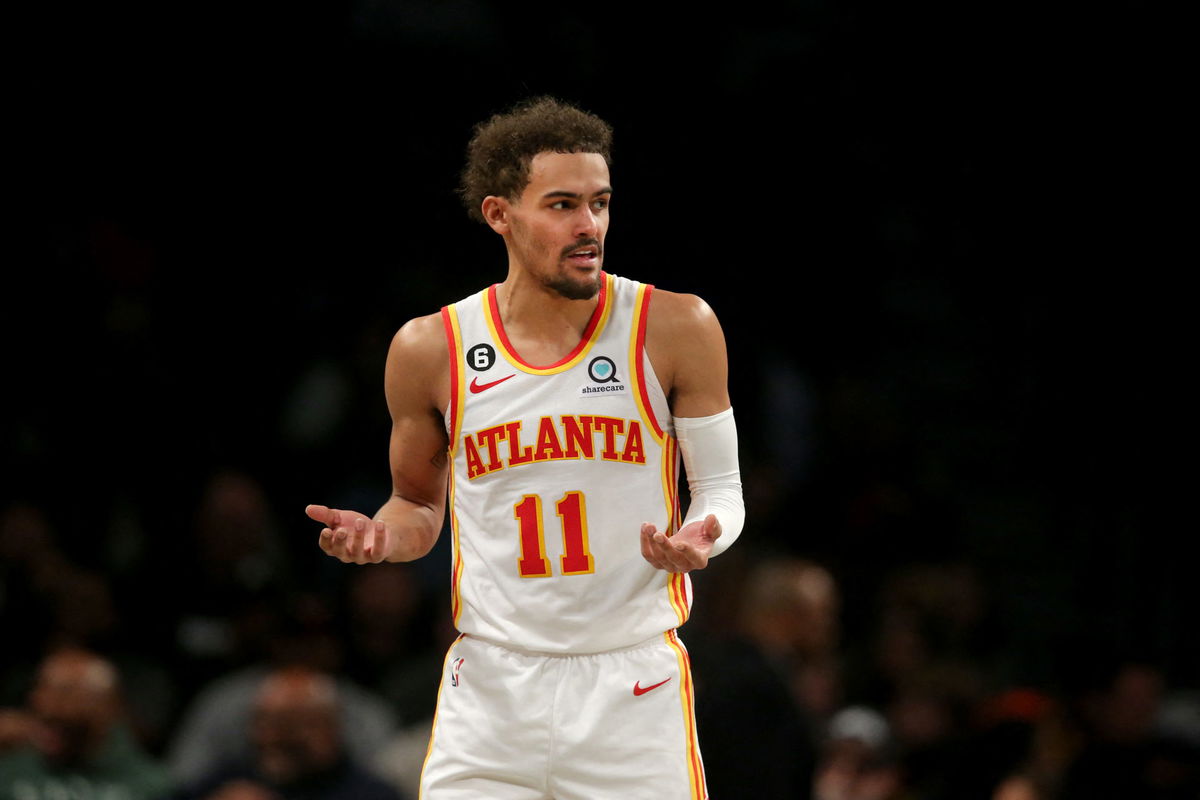
USA Today via Reuters
Dec 9, 2022; Brooklyn, New York, USA; Atlanta Hawks guard Trae Young (11) reacts during the second quarter against the Brooklyn Nets at Barclays Center. Mandatory Credit: Brad Penner-USA TODAY Sports

USA Today via Reuters
Dec 9, 2022; Brooklyn, New York, USA; Atlanta Hawks guard Trae Young (11) reacts during the second quarter against the Brooklyn Nets at Barclays Center. Mandatory Credit: Brad Penner-USA TODAY Sports
NIL continues to be a hot topic of debate everywhere. Talking heads and basketball pundits list the pros and cons of it while the deals keep getting bigger and bigger each year. So much so that it has reached a point where even kids who pursue a sport because of their love for the game end up getting swayed by the money they can make during college. However, as someone who didn’t really benefit heavily from the NILs despite being a star guard at Oklahoma, Trae Young seems to have a neutral standpoint on the subject.
Watch What’s Trending Now!
Of course, this isn’t the first the 3x All-Star has spoken on the matter, but we have never really understood it from his viewpoint. When Gillie Da King, legendary Philadelphia rapper, asked Trae if he ever wondered what it would have been to ink a Kentucky Fried Chicken NILs or AT & T NIL deals, the 6’1 guard smiled a sly smile, and said, “Yes and No.”
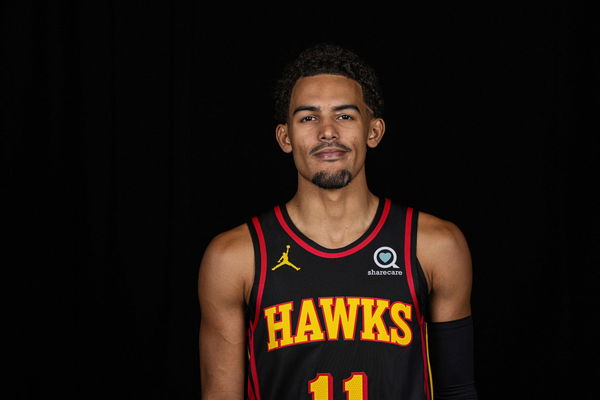
USA Today via Reuters
Sep 23, 2022; Atlanta, GA, USA; Atlanta Hawks guard Trae Young (11) poses for a photo during Hawks media day. Mandatory Credit: Dale Zanine-USA TODAY Sports
“In these few sports that really get the NIL money, you’re like a professional athlete. So it’s like they treating it like free agency. If they don’t play a lot, they transferring in and out,” ‘Ice Trae’ said, pointing out the glaring setback. Young then further went on to explain the difference in the mindset of the young athletes now as opposed to when he was in college. Or at least what he felt was the distinction.
ADVERTISEMENT
“I feel like for me, and kids in my class, and even younger generation players, we were just fighting to get to the lead to get that generational wealth and to achieve our dreams and play in the NBA. We weren’t focused on money in college, cuz we knew we worked our a– off, that one day it was going [to] come, regardless.”
Trae wasn’t kidding when he said that he worked hard. By now, we are all familiar with how Trae Young was overlooked because of his undersized frame. It certainly reminds us of a certain ‘underrated’ Warriors star. And unsurprisingly, he was compared to Steph, particularly for his playing style in the 90-80 win over Oregon Ducks where he dropped a season-high 43 points. Curry, for his part, had heaped praise on the then-Sooners freshman for his “fluid” style and always being “calm, composed, and confident.”
ADVERTISEMENT
Hence, per Young, while the money the kids receive is a great incentive, the issue is when it becomes the only factor they consider. But why is that so bad?
ADVERTISEMENT
Trae Young believes investing in developing one’s game will pay dividends which incidentally lines up with an ex-NFL legend’s thoughts
The 3x Super Bowl champion, Randy Cross, in a recent appearance on Outkick’s Don’t @ Me With Dan Dakich, was fuming at the way NILs have changed the landscape of college athletics. Be it basketball, football, or baseball, all the 16-year-olds want to know is about the money aspect. Cross further supplanted his claim with an instance of his life.
The UCLA Bruins alum’s son works as a college basketball recruiter at Illinois State. “He called me the other day, saying, ‘I just wasted 45 minutes of my life bragging about our school and our program and our history, and all the [dads] wanted to know was NIL money’.” Cross recounted the disappointing experience.
Top Stories
LeBron James Drops Retirement Hint as He Shuts Down Claims of All-Time Record
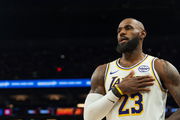
Did NBA Fine Derrick White and Grady Dick for Exchanging Jerseys? Fact Checking Viral News
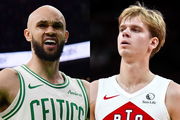
Paige Bueckers Gives a Peek Into Her Minnesota Christmas Away From WNBA

Draymond Green Breaks Silence on Heated Steve Kerr Moment Leading to Exit From Warriors-Magic
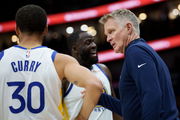
WNBA Expansion Draft: Predicting 5 Players Every Team Will Protect

Young, too, touched upon this area. The Texas native outlined why it’s important to choose a school or college that will help in developing your skills, game, etc. for a long and rewarding NBA career. “The ones that sacrifice on making sure that they pick the right school for the reasons that’s going to give you the longevity of a career in the NBA, the coaches, developmental [will succeed]. The money and stuff’s going to take care of itself in the long run.”
ADVERTISEMENT
Well, these are veteran athletes giving insights from their own experience. So, it definitely is valuable. However, there could be at last a few kids and their families who would truly benefit from these deals. And if they can keep a good head on their shoulders, there is no doubt they can do well now and in the long run.
But what do you think of it all? Do you believe NIL deals are advantageous? Or do they sidetrack promising athletes from focusing on developing their skills? Let us know your thoughts.
ADVERTISEMENT
ADVERTISEMENT
ADVERTISEMENT

